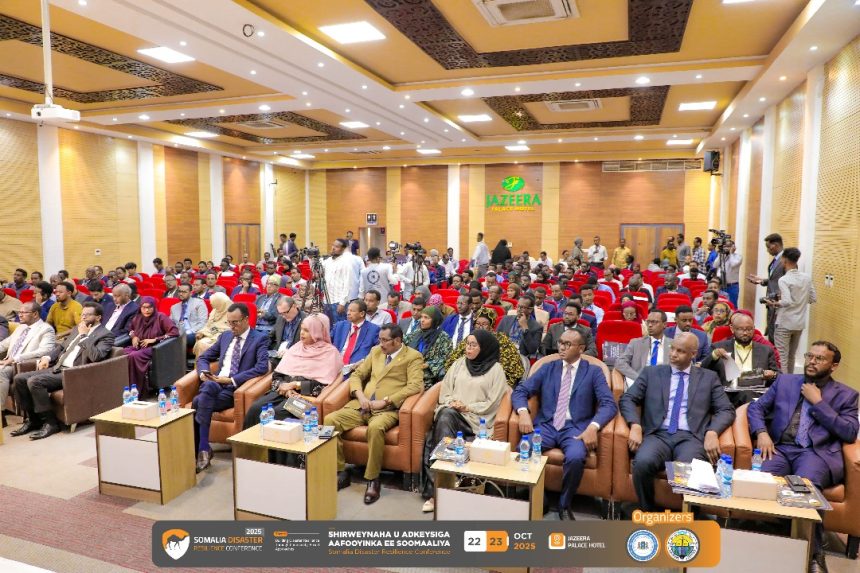Government and Partners Converge in Mogadishu to Build Somalia’s Disaster Resilience

GOOBJOOG NEWS | MOGADISHU: The Second Somalia Annual Disaster Resilience Conference opened in Mogadishu on Wednesday, bringing together government leaders, researchers, and international partners to strengthen the country’s preparedness for climate-related crises.
The two-day forum, organized by the Somali Disaster Management Agency (SoDMA) and Mogadishu University, focuses on shifting Somalia’s approach from emergency response to long-term resilience under the theme “Building Disaster Resilience Through Community-Based Approaches.”
Acting Prime Minister Salah Ahmed Jama, who officially opened the conference, said research and evidence-based policy will be central to Somalia’s future development. “Research is not just advisory — it is the backbone of national decision-making,” he said.
Jama linked the conference’s objectives to the upcoming National Transformation Plan (2025–2029), which emphasizes data-driven governance and scientific understanding of disaster risks. He said community participation and stronger local infrastructure will be key to reducing vulnerability and building resilience.
“This conference demonstrates how research, local knowledge, and community participation can be turned into action,” he added, noting that Somalia is rebuilding state institutions to extend essential services nationwide.
SoDMA Commissioner Mohamud Moalim Abdulle said the forum creates “a platform to establish systems based on research and planning to address the country’s disasters.” Mogadishu University President Ibrahim M. Mursal echoed the call for stronger academic engagement, saying, “Knowledge is the greatest power with which we can prevent disasters.”
The conference also drew senior officials, including Petroleum Minister Dahir Shire Mohamed, who highlighted cooperation with the private sector, and UN humanitarian coordinator Georg Conway, who described the event as “a crucial step toward integrating research and action to reduce humanitarian risks.”
Somalia’s leadership reaffirmed that building resilience will depend on combining local knowledge, academic research, and government policy to better prepare the country for future climate shocks.